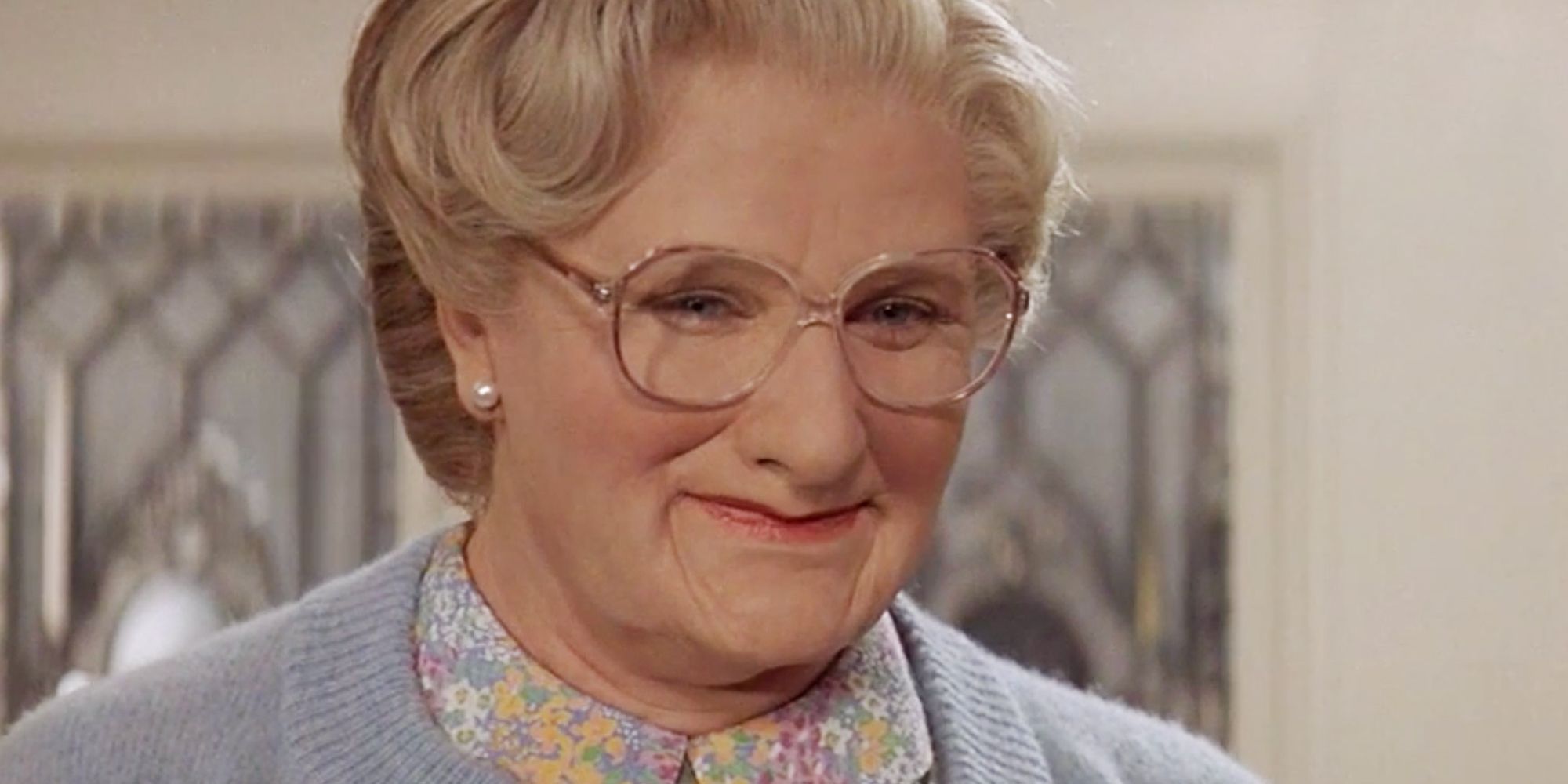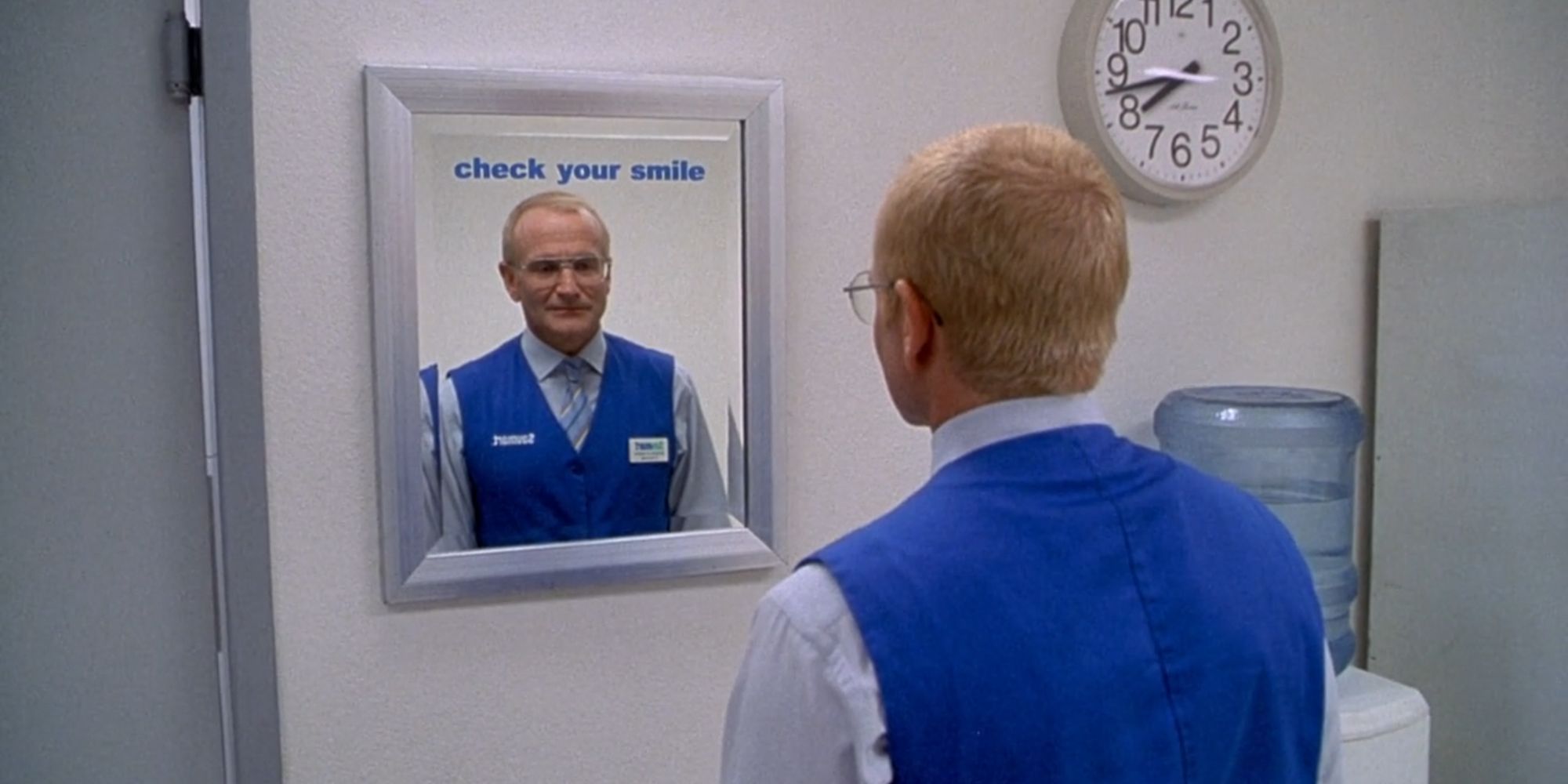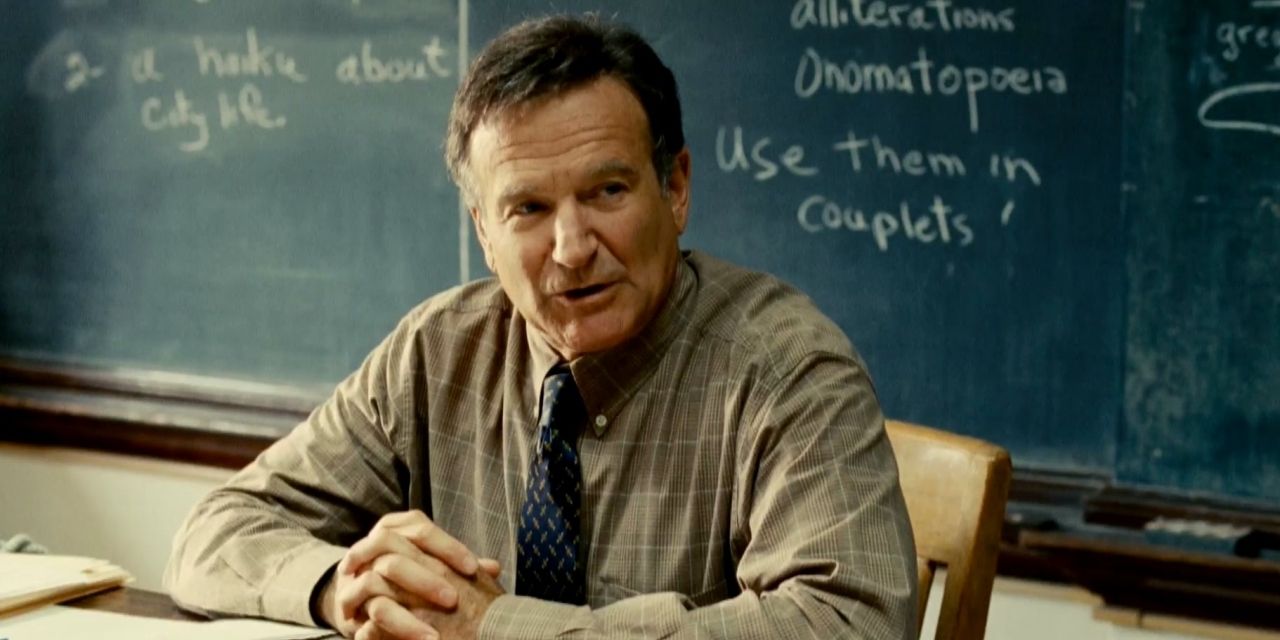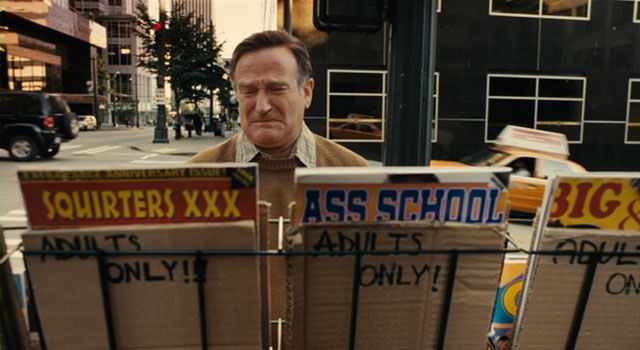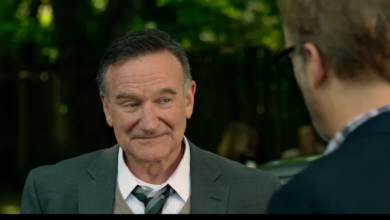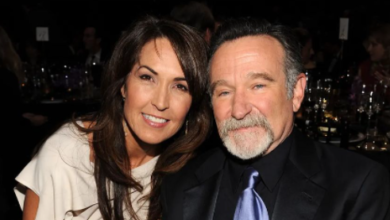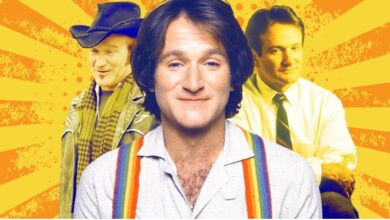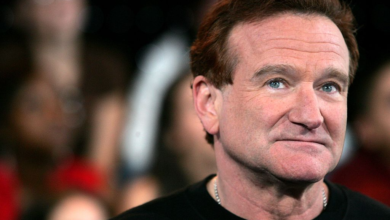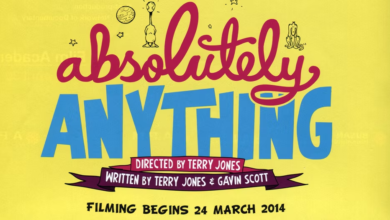Robin Williams’ Best Performance Came in His Most Disturbing Film
The classic funny man finds humor in the darkest place in this film written and directed by Bobcat Goldthwait.
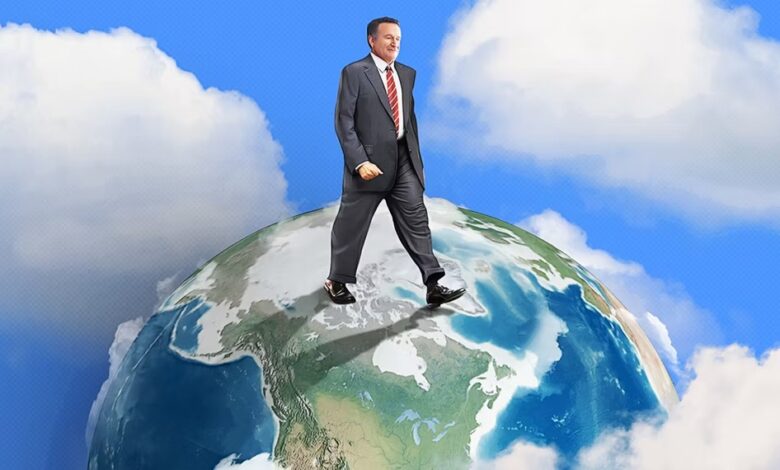
Robin Williams is remembered as one of the most versatile and beloved performers of all time. From his beginnings in stand-up comedy to portraying a fish-out-of-water alien on TV’s Mork & Mindy, it was clear from the get-go that he was unlike any of his contemporaries. Williams seemed to be truly from beyond the stars, and his larger-than-life roles befit his otherworldliness, from the Genie in Aladdin to Popeye the Sailor Man to Jack, the perpetual child. He seemed on-screen to always be chasing humanity, so it’s strange to posit his most powerful and honest performance comes in his most disturbing film, 2009’s World’s Greatest Dad. Written and directed by fellow comedian Bobcat Goldthwait, the film is a crude and hard-hearted minefield of triggers and sordid toilet humor, anchored by a cringe-inducing and yet wholly genuine performance from Williams. It is likely his most human turn, after a lifetime of striving for such authenticity.
America’s Funny Dad
Williams rose to fame playing likable, zany characters. Mork was an early standout, and though the majority of the 1980s found him clamoring for dramatic acclaim, he leaned into his comic stylings in the 1990s, cranking out iconic turns in films like Aladdin, Nine Months, Jumanji, The Birdcage, Hook, and Mrs. Doubtfire. Those last three specifically, showcased Williams as a devoted father, willing to go to great lengths to do right by his children. Armand Goldman performs an elaborate misdirection to grant his son the blessing of marriage, Peter Banning returns to Neverland to rescue his children, and Daniel Hillard performs an elaborate misdirection to spend time with his children during a separation from their mother. It seemed at every turn that Williams was positioning himself to be America’s Funny Dad, even going so far as to square off against Billy Crystal in 1997’s Fathers’ Day for that distinction.
Perhaps even more telling was his turn in the 1999 science fiction philosophy tale Bicentennial Man. In the film, Williams plays a robotic helper, essentially an android appliance, that learns to yearn to be human. He lobbies, first with his family, and eventually and repeatedly with the governing body of his nation, to become increasingly more human, adopting rights, a more befitting corporeal form, and later to be allowed to die. It seemed to be a role wherein Robin Williams, the performer, was begging audiences to be seen as Robin Williams, the man.
Breaking Bad in the Early 2000s
When those roles failed to have the desired effect, Williams broke bad, leaning into truly villainous roles. In 2002 alone, he turned in three groundbreaking performances, as murderer Walter Finch in Christopher Nolan’s Insomnia, stalker Sy Parrish in One Hour Photo, and sociopath Rainbow Randolph in Danny DeVito’s dark comedy Death to Smoochy. Each of these films saw Williams shed his paternal image and embody characters that were categorically unlikable, though it is the Rainbow Randolph character that most closely telegraphs what he would eventually bring to World’s Greatest Dad. There’s a simplicity to Randolph’s reactionary reshaping to the events that surround him and box him in. Though audiences wouldn’t necessarily see themselves in his actions, they can at least, as the rules of black comedy command, follow his downward spiral with diminishing doses of sympathy.
What Is ‘World’s Greatest Dad’ About?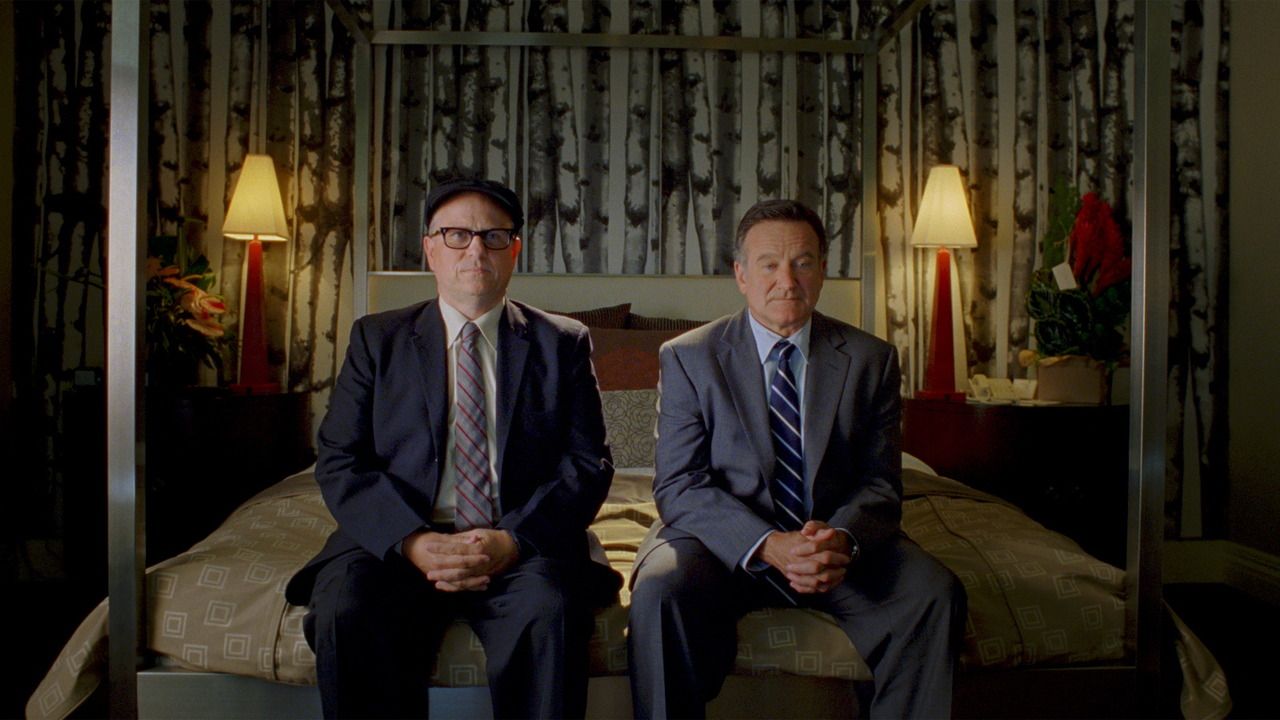
World’s Greatest Dad stars Williams as sad sack Lance Clayton, a failed writer raising a despicable child in a bucolic corner of America. Coming in at a lean 99 minutes, the first 40 find us learning the definitions of Clayton’s boxed life. He hasn’t published any of the many writing endeavors he’s queried over the years and is, in fact, on the verge of giving it all up if his fifth novel is rejected. He is a single father teaching poetry at a sparsely attended class in a nondescript preparatory high school. He has a secret romance with the art teacher, played with frequent turns of sincerity and sensationalism by Alexie Glimore, though he is nonplused by her reticence to make their connection known. He is a withdrawn man, embittered by his perceived failures and jealous of his charming and handsome colleague Mike Lane, played by Henry Simmons. When he discovers that Mike has published a short in the New Yorker he attempts to undercut the success with derisive remarks, all of which miss their mark and further paint him as shallow and ineffective.
Most damning of all, however, is the dark cloud of his foul-mouthed, perverted, insensitive, and all-around contemptible son, Kyle. Goldthwait seems to take great pleasure in ruining childhoods, not only tarnishing our remembrances of Aladdin by casting Williams but also ruining Spy Kids, as well, by casting Daryl Sabara as the reviled son. Kyle is thoroughly unlikable, defining himself by his fascination with extreme porn, lambasting all of his schoolmates as phonies, and referring to all around him with the most offensive slurs he can get away with. The character is given virtually zero redeeming qualities, so few are moved when he unceremoniously passes away during an autoerotic asphyxiation session gone awry. The only ones to mourn him are his father, Lance, and his only friend Andrew, played by Evan Martin.
The Turning Point
From this point the film, and Williams, come alive. The scene wherein Lance finds Kyle’s body is heartbreaking, and in a move of filmmaking genius is done without dialogue. Music swells as all other sound falls away, and the viewer is given only the images of Lance’s pained howls as he cradles his son’s body in his arms. It is a gutting, raw performance from Williams, and one that gives the audience its last perception of him as relatable for a good long while. Realizing the legacy of the circumstances of his son’s demise, Lance makes a decision to rewrite his passing. He stages the strangled body in the door of his closet to look like a suicide, and pens a devastating letter, accusing the student body of ostracizing the misunderstood Kyle and painting him into a corner with few choices. This symbolic act turns out to damn the father to a similar fate.
As the contents of “Kyle’s” letter are released, a cult of personality surrounds the lost child. Lance is caught up in the frenzy of strangers reinventing themselves as comrades and the accompanying media circus that sensationalizes teen angst. Lance goes on to pen a diary, and it becomes a runaway success. Soon he has invites to golf with his superiors, invites to television, and the undivided attention of his love interest. His life is starting to look like he’d always imagined it, with bags of cash and the adoration of strangers. The lies weigh on him, however, reshaping him into someone he doesn’t recognize, the same way he had reshaped his son into a misunderstood prophet of ignominy.
Ultimately, Robin Williams’ Character Is All Too Human
To distill the humanity of Williams’ performance, one needs to look at one unlikely scene. The overall theme of the film is narrative, the revisionist gloss we use to paint over the legacy of those we lost, and the corners we paint ourselves into with the little lies that bring us comfort in our darkest times. Life imitated art in 2014 when the world lost Robin Williams to an apparent suicide, and suddenly his struggles with alcohol and cocaine took a far back seat to his prowess as a performer. There’s no shame in this; we deal with grief by lionizing the dead. Those who’ve been taken from us are “angels” and we weep at the mere remembrance of them. But in that remembrance, and the talismans that usher it forth, there is truth.
There is a moment in the film that finds Lance standing before a street vendor’s magazine rack, looking upon a selection of filthy pornographic magazines. He isn’t reaching out to them, and he isn’t interested in their stark depictions of sexuality and base hedonism. He probably doesn’t even see the women exploited on their covers. He sees his son — his filthy, depraved, perverted son — and he openly weeps. He is comforted by the vendor, played by Nirvana bassist Krist Novoselic, with a simple arm around the shoulder. It is a reflective act, a distillation of humanity. The vendor likely doesn’t know why the man is crying, and Lance likely knows that, but accepts the comfort all the same. It’s a reminder that we’re all microcosms unto ourselves of bottomless depths, and we are ultimately unable to understand or categorize those around us. Everyone is a boundless mystery and that is what truly binds us: our differences. Ours is not to understand but to accept.
World’s Greatest Dad is released by Magnolia Pictures and can be found on several streaming outlets.

